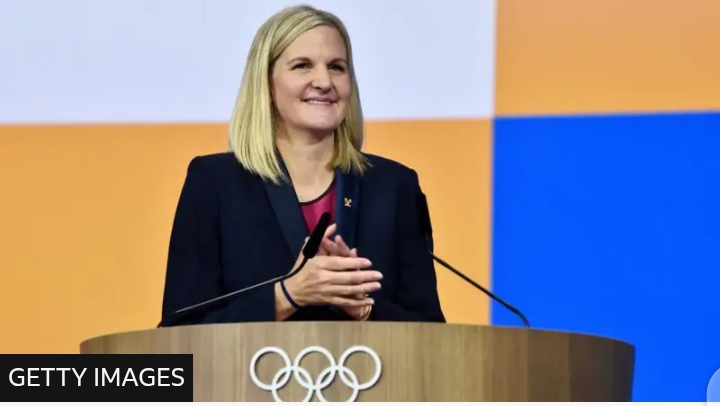Olympic Champion Vows to Modernize Movement Amid Global Challenges
Zimbabwe’s Kirsty Coventry, a two-time Olympic gold medalist, shattered multiple barriers on Thursday by becoming the first woman, the first African, and the youngest person ever elected president of the International Olympic Committee (IOC). The 41-year-old former swimmer secured a decisive victory in the first round of voting, earning 49 of 97 votes to succeed Germany’s Thomas Bach, who led the IOC since 2013.
Coventry, a seven-time Olympic medalist and member of the IOC’s executive board, triumphed over six male candidates, including World Athletics chief Lord Coe, who garnered just eight votes. Juan Antonio Samaranch Jr. of Spain finished second with 28 votes. The election, held at a seaside resort near Olympia—the birthplace of the ancient Games—marked a historic shift for the 129-year-old organization.
A Trailblazer’s Vision
In her acceptance speech, Coventry highlighted the symbolic weight of her election: “The young girl who first started swimming in Zimbabwe all those years ago could never have dreamed of this moment. Glass ceilings have been shattered today.” She pledged to prioritize modernizing the IOC, promoting sustainability, embracing technology, and empowering athletes.
Coventry also reaffirmed her controversial stance on transgender participation in women’s sports, supporting a blanket ban. “I am fully aware of my responsibilities as a role model,” she said, emphasizing her commitment to protecting female athletes.
Controversies and Challenges
Despite her celebrated athletic career, Coventry’s political role as Zimbabwe’s sports minister since 2018 has drawn scrutiny. Her ties to President Emmerson Mnangagwa’s government—accused of corruption and human rights abuses by the U.S.—and FIFA’s 2022 ban on Zimbabwe’s football teams over political interference have fueled criticism. Coventry has defended her position, stating she works to “improve sport for everyone” in her homeland.
A Delicate Path Ahead
Coventry, who begins her eight-year term in June, inherits a complex landscape. Key challenges include navigating geopolitical tensions, the potential reintegration of Russian athletes post-Ukraine invasion, and preparations for the 2028 Los Angeles Games under a potential Donald Trump administration. She must also address climate change, gender eligibility debates, and declining youth engagement with the Olympics.
Analysis: An Insider’s Rise
Observers note Coventry’s election reflects outgoing president Bach’s influence, as she was widely seen as his preferred successor. Her insider status and conciliatory campaign—avoiding public criticism of rivals—helped secure broad support among IOC members.
“This is a landmark moment, but also a test,” said one analyst. “Coventry must balance tradition with transformation to keep the Olympics relevant.”
As the IOC’s 10th president, Coventry now leads an organization at a crossroads, tasked with uniting a fractured sporting world while upholding Olympic values in an era of unprecedented change.
Kirsty Coventry Makes History as First Female, African IOC President
